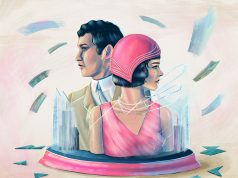If you take a closer look, life at the Hundred Acre Woods might not be as happy as it seems. Home to Winnie The Pooh and his bestest of friends, Piglet, Tiger, Rabbit, and Eeyore, the Hundred Acre Woods was inspired by its writer A.A. Milne’s real and not so calm life. Well, in some way. Winnie the Pooh
Underneath the happy-go-lucky story and cheerful characters, a lot of theories surfaced, all pointing out mental health disorders and illnesses that are left untreated and undiagnosed. Some resembled fan fiction, but not to the extent of Twilight‘s reimagined Life and Death story, while others held a lot of weight with scientific research.
In 2000, pediatrician and Ph.D. holder Sarah Shea and her team of pediatricians released a journal titled “Pathology in the Hundred Acre Wood: a neurodevelopmental perspective on A.A. Milne.” In easier terms, it proposed that each of the Winnie-the-Pooh characters displayed symptoms of a different mental disorder.
Stunned by the paper at first, readers seemed to agree with Dr. Shea’s theory, especially after knowing more about the author who came up with the life at the Hundred Acre Woods. If you rematch the movies or re-read the books now, as an adult, you might be able to see it too.Winnie the Pooh
A.A. Milne was a war veteran who has participated in and survived two world wars. Coming back from the war, he was never the same. Suffering from post-traumatic stress, the author left the city for a calm life in the outskirts where he wrote his famous children’s books and had a turbulent relationship with his only son, Christopher Robin.
Ph.D. Valentine Stoycheva from Psychology Today analyzed his books as “a creative way of talking about his struggles and those of many other individuals affected by trauma.”
Pooh Bear is starting to sound pretty gloomy now, right?
But the story of Pooh is far from it, and so are the studies around its mental health diagnostics. The books tackle life and friendship in a way that is reassuring to every child.
The Winnie the Pooh books teach children about love, forgiveness, patience, trust, and acceptance. Even if they are subtly full of mental health undiagnosed issues, they normalize them and remove the stigmas that today’s society has enforced around them.
So what are the proposed diagnosis for each character?
Winnie the Pooh: Attention Deficit Hyperactivity Disorder (ADHD)
Piglet: Generalized Anxiety Disorder (GAD)
Tigger: Recurring Pattern of Risk-Taking Behaviours
Rabbit: Possible Narcissism
Eeyore: Dysthymia- or ‘Persistent Depressive Disorder’
Owl: Dyslexia
Roo: Autism
Kanga: Social Anxiety Disorder






